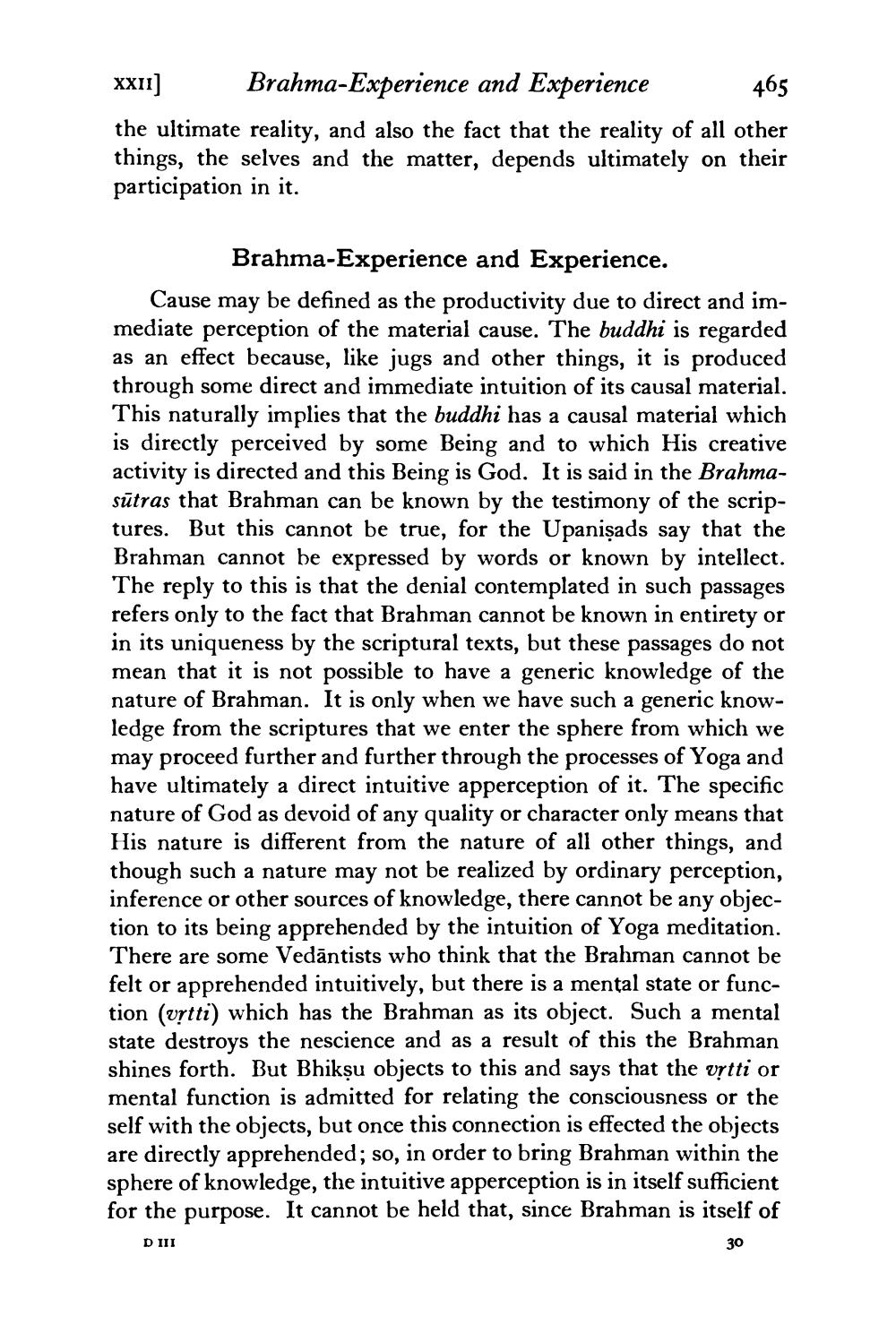________________
XX11] Brahma-Experience and Experience 465 the ultimate reality, and also the fact that the reality of all other things, the selves and the matter, depends ultimately on their participation in it.
Brahma-Experience and Experience. Cause may be defined as the productivity due to direct and immediate perception of the material cause. The buddhi is regarded as an effect because, like jugs and other things, it is produced through some direct and immediate intuition of its causal material. This naturally implies that the buddhi has a causal material which is directly perceived by some Being and to which His creative activity is directed and this Being is God. It is said in the Brahmasūtras that Brahman can be known by the testimony of the scriptures. But this cannot be true, for the Upanişads say that the Brahman cannot be expressed by words or known by intellect. The reply to this is that the denial contemplated in such passages refers only to the fact that Brahman cannot be known in entirety or in its uniqueness by the scriptural texts, but these passages do not mean that it is not possible to have a generic knowledge of the nature of Brahman. It is only when we have such a generic knowledge from the scriptures that we enter the sphere from which we may proceed further and further through the processes of Yoga and have ultimately a direct intuitive apperception of it. The specific nature of God as devoid of any quality or character only means that His nature is different from the nature of all other things, and though such a nature may not be realized by ordinary perception, inference or other sources of knowledge, there cannot be any objection to its being apprehended by the intuition of Yoga meditation. There are some Vedāntists who think that the Brahman cannot be felt or apprehended intuitively, but there is a mental state or function (urtti) which has the Brahman as its object. Such a mental state destroys the nescience and as a result of this the Brahman shines forth. But Bhikṣu objects to this and says that the vrtti or mental function is admitted for relating the consciousness or the self with the objects, but once this connection is effected the objects are directly apprehended; so, in order to bring Brahman within the sphere of knowledge, the intuitive apperception is in itself sufficient for the purpose. It cannot be held that, since Brahman is itself of
30
DIII




